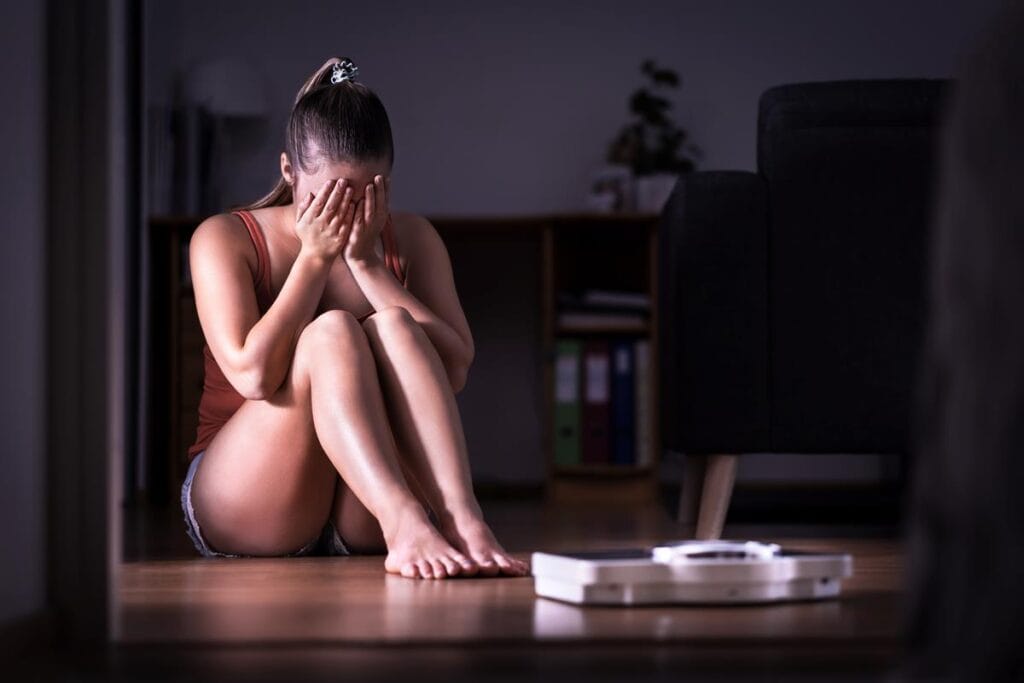Do you find yourself obsessing over body image and eating habits? Do you find yourself eating more or less than you used to based on how you feel about yourself?
Eating disorders can be upsetting, both for the individual and their families, and the journey towards recovery begins with self-compassion and talking about what you’re feeling. You’re not alone.

Eating disorders are characterised by unhealthy attitudes towards food, persistent disturbance in eating behaviour, and an obsession with weight and body shape. They also often involve a distorted perception of one’s own body image. The main types of eating disorders are Anorexia Nervosa (persistent restriction of food intake), Bulimia (recurrent episodes of binge-eating followed by purging), and Binge Eating Disorder (recurrent episodes of binge-eating, feeling a lack of control over the episode).
Symptoms
Some of the symptoms of eating disorders include spending a large amount of time worrying about weight and body shape, avoiding socialising that involves food, inducing vomiting after eating, over-exercising, having strict habits around food, and changes in mood. As a result of these symptoms, someone could also experience problems with digestion, feeling cold or dizzy, or a dramatic change in weight.
Causes
Some factors that could make someone vulnerable to developing an eating disorder are having anxiety, perfectionist tendencies, low self-esteem, difficulty managing emotions, excessive criticism relating to weight or eating habits, abuse, or a member of the family having a history of an eating disorder or another mental health condition. Socio-cultural factors, such as social media and standards in the fashion industry, may also contribute towards eating disorders.
Treatment
Because of their complexity, eating disorders often require a comprehensive treatment plan involving medical care, nutritional counselling, and therapy, including individual, group, and family-based therapy. Within the scope of therapy, working through the issues associated with eating disorders, such as self-esteem, anxiety, perfectionism, distorted perception of one’s body, and traumas, may help in getting to the root of the condition and in taking significant strides forward in treating it.

For more information on body image or eating disorders, please see the resources below.

References & Resources
Bodywhys. (2024). What Causes an Eating Disorder?
Retrieved from: https://www.bodywhys.ie/understanding-eating-disorders/key-issues/what-causes-an-eating-disorder/
HSE. (2022). Eating Disorders.
Retrieved from: https://www2.hse.ie/conditions/eating-disorders/
Psychology Today. (2024). Eating Disorders.
Retrieved from: https://www.psychologytoday.com/ie/conditions/eating-disorders
Helplines
Aware – 1800 80 48 48
Bodywhys – 01 2107906
Childline Ireland – 1800 66 66 66
Grow – 0818 474 474
Pieta House – 1800 247 247
Samaritans Ireland – 116 123
For more, see Mental Health Ireland helpline resources: https://www.mentalhealthireland.ie/get-support/